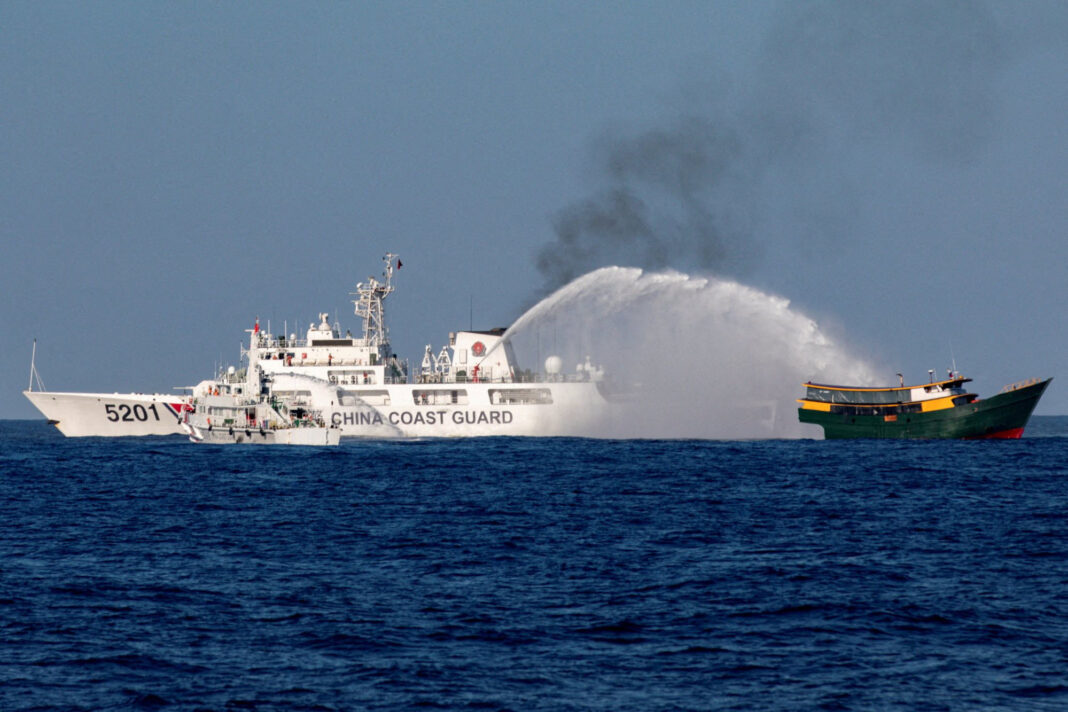The Philippines has said it will continue to maintain and supply its South China Sea outposts without seeking permission from any other nation, dismissing Beijing’s demand to do so as “absurd, nonsense and unacceptable”.
“Our operations are conducted within our own territorial waters and EEZ,” National Security Adviser Eduardo Ano said in a statement late Saturday, referring to the nation’s exclusive economic zone. “We will not be deterred by foreign interference or intimidation.”
He added: “We do not and will never need China’s approval for any of our activities therein.”
Ano was responding to Chinese Foreign Ministry spokesperson Mao Ning’s comment on Friday that the Philippines should notify Beijing in advance if it wants to deliver provisions or evacuate personnel from its grounded warship in the Second Thomas Shoal.
China claims swathes of the South China Sea, including areas the Philippines views as part of its exclusive economic zone. Beijing has barred delivery of construction materials to the rusty World War II-era ship, BRP Sierra Madre, which Manila has kept as its military outpost in the disputed shoal since 1999.
Ano cited the China coastguard’s “aggressive actions” against a Philippine vessel evacuating a sick soldier on May 19 from the ship, which he called “barbaric and inhumane.”
“Such actions are not only violations of international maritime laws but also of basic human rights,” he said. Recent reports of Chinese forces allegedly seizing food and medical supplies meant for Filipino troops at BRP Sierra Madre “are equally reprehensible and warrant a thorough investigation and accountability,” the national security chief said.
The latest exchange of barbs between Manila and Beijing comes not long after Philippine President Ferdinand Marcos Jnr asserted his nation’s claims in the South China Sea during a top regional defence forum where he pledged not to yield in the contested sea.
Ano said the Philippines remained open to dialogue and peaceful negotiations to resolve disputes in the waterway, but added that it “must be based on mutual respect and adherence to international law”.
Additional reporting by Reuters

